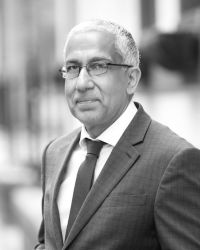Disclosure and Barring Service & Regulated Activity

A ‘Regulated Activity’ involving children and vulnerable adults, as defined by Part 1, Schedule 4 of the Safeguarding Vulnerable Groups Act 2006 (‘the Act’) refers to activities that individuals listed on the Disclosure and Barring Service (DBS) list are prohibited from undertaking.
These ‘activities’ encompass a wide range of interactions, from direct care and supervision of vulnerable individuals, to roles that involve substantial contact or influence over them. Understanding the nuances of regulated activities is essential for organisations, professionals, and volunteers who engage with children and adults at risk.
Many organisations in various sectors including education, healthcare and social services use the DBS check as part of the vetting process, promoting safer recruitment practices and enhancing safeguarding measures.
In this article Helen Holder of KANGS outlines the nature of regulated activity under the Act.
Regulated Activity
Children
Schedule 4 Part 1 of the Act provides as follows.
A regulated activity relating to children is one, which is carried out frequently by the same person involving:
- relevant personal care and
- health care provided by, or under the direction of, a health care professional.
Relevant personal care covers:
Physical assistance which is given to a child who needs it by reason of:
Illness or disability - and is given in connection with eating or drinking (including the administration of parenteral nutrition).
Age, illness or disability - and is given in connection with:
- toileting (including in relation to the process of menstruation),
- washing or bathing, or
- dressing.
The prompting (together with supervision) of a child, who is in need of it by reason of age, illness or disability, in relation to the performance of the listed activities where the child is unable to make a decision in relation to performing such an activity without such prompting and supervision.
Any form of training, instruction, advice or guidance which:
- relates to the performance of the activity of eating or drinking,
- is given to a child who is in need of it by reason of age, illness or disability.
Health care includes all forms of health care provided for children, whether relating to physical or mental health and includes palliative care for children and procedures that are similar to forms of medical or surgical care but are not provided for children in connection with a medical condition.
A health care professional is a person who is a member of a profession regulated by a body mentioned in section 25(3) of the National Health Service Reform and Health Care Professions Act 2002.
Vulnerable adults
Schedule 4 Part 2 of the Act provides that the following are regulated activities:
- providing health care by, or under the direction or supervision, of a health care professional,
- the provision to an adult of personal care including physical assistance with eating, drinking, toileting, washing, bathing, dressing, oral care or the care of skin, hair or nails for adults who can not carry this out themselves because of their age, illness or a disability,
- providing social work by a social care worker to an adult who is a client or potential client,
- assisting an adult who cannot manage themselves, because of their age, illness or disability, with the day to day running of their household; for example, by managing cash, paying bills or helping with shopping.
- any relevant assistance in the conduct of an adult’s own affairs,
- conveying of adults who need to be conveyed because of age, illness or disability.
Regulated Activity: Who is a Barred Person?
Section 3 of the Act provides:
- a person is barred from regulated activity relating to children if included in the children’s barred list.
- a person is barred from regulated activity relating to vulnerable adults if included in the adults’ barred list.
In both cases, provision is made to include Scotland and Northern Ireland.
How is an Offence Committed?
Section 7 of the Act provides:
‘Barred person not to engage in regulated activity
(1) An individual commits an offence if he -
- seeks to engage in regulated activity from which he is barred;
- offers to engage in regulated activity from which he is barred;
- engages in regulated activity from which he is barred.’
Penalty Upon Conviction of an Offence
A person guilty of an offence is liable:
- in a Crown Court – to a fine, imprisonment for a term not exceeding five years or both.
- in a Magistrates’ Court - to a fine not exceeding the statutory maximum, imprisonment for a term not exceeding the general limit or both.
Potential Defences
By way of a potential defence, sections 7 (3) and (4) of the Act provide a person charged may prove that he:
- did not know, and could not reasonably be expected to know, that he was barred from that activity,
- reasonably thought that it was necessary for him to engage in the activity for the purpose of preventing harm to a child or vulnerable adult,
- reasonably thought that there was no other person who could engage in the activity for that purpose, and
- engaged in the activity for no longer than was necessary for that purpose.
How Can We Assist?
If you work with children or vulnerable adults, understanding your responsibilities under the Safeguarding Vulnerable Groups Act 2006 is vital. It is also important that you understand your rights and how to challenge the information on a DBS certificate .
The Team at KANGS regularly assists clients who find themselves unfairly placed on a Barring List after a DBS check. We are able to assist you as soon as you receive any communication from the Disclosure and Barring Service or find out that you have been placed on a Barring List.
Our experienced team of solicitors can;
- assist with making a DBS appeal, requesting your removal from the Barred list
- assist in challenging the relevancy or accuracy of information on a DBS certificate
- assist in responding to Minded to Bar letter
For tailored advice or legal assistance, contact our experienced team using the details below:
Tel: 0333 370 4333
Email: info@kangssolicitors.co.uk
We provide initial no obligation discussion at our three offices in London, Birmingham, and Manchester. Alternatively, discussions can be held through video conferencing or telephone.
Top ranked by leading legal directories Chambers UK and the Legal 500.







